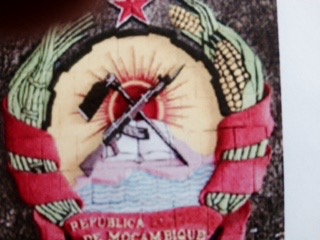
A few years ago, I was invited by my daughter and her family to spend some time with them in Mozambique, a country on the east coast of Africa where they had been living for a couple of years.
I decided to share my time in Africa with elementary school children by seeking out an adventure and taking photos every week. I called my blog Come to Africa with Me.
When I was a small child, my mom read me a story by Rudyard Kipling called The Elephant’s Child. The story took place in what seemed to me a faraway, mysterious land called Africa, close to the great gray, green, greasy, Limpopo River.
I was fascinated with the story, but I never dreamed that one day I would go to Africa and see that river with the melodic name.
The lady checking my passport as I entered the country had a scowly face until I said, “I am so happy to be in your country.” Then she gave me a big smile.
I was there to spend nearly a year in Maputo, the capitol of Mozambique, a country that was a colony of Portugal until 1975 when it became an independent country. It has beautiful beaches and a coastline of 1,500 miles along the Indian Ocean. For many years, it was a favorite vacation spot for people from South Africa. A long civil war ended that for many years, but today vacationers have returned.
Many of the people who live in Mozambique are poor and live in small stick and straw homes sometimes right across the street from big beautiful houses surrounded by high fences and with guards at their entrances day and night.
Yet the people of Maputo make sure their clothes are clean and pressed as they walk to their jobs in the city. The streets are crowded all the time. Often trash bins are overflowing and you can see people going through them to see if they can find anything of value. Some streets are crumbling and now and then there’s a big hole right in the middle of the sidewalk.
Cars move very fast and they do not stop for pedestrians. Motorists drive on the left side of the road, opposite from the way we drive in the United States. Learning to drive in Africa takes a bit of practice and can be scary.
The American School that my three grandchildren attend is surrounded by a high fence. There are two guards at the big main gate, even on weekends when families come to enjoy the big swimming pool, playground, field for playing cricket, baseball and soccer, and tennis court. The school is the community gathering place of and is the scene birthday parties, picnics, and sporting events.
Students at the American School come from all over the world—South Africa, Norway, Sweden, Greece, Brazil, Spain, Holland, France, Germany, Denmark, and Canada. Class sizes are small, between five and 17. Classes are taught in English but all the students take Portuguese, the official language of Mozambique. The money needed to run the school comes from the families whose children attend this private school.
While I was there, I had a chance to substitute teach at the American School and get to know many of these very interesting students.
Support Northern Colorado Journalism
Show your support for North Forty News by helping us produce more content. It's a kind and simple gesture that will help us continue to bring more content to you.
BONUS - Donors get a link in their receipt to sign up for our once-per-week instant text messaging alert. Get your e-copy of North Forty News the moment it is released!
Click to Donate
